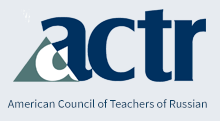Russian Language Journal
Keywords
virtual exchange, virtual learning, Russian language learning
Abstract
In the context of emergency remote language teaching during the pandemic, the biggest challenge for instructors has been to continue providing learners with opportunities to practice speaking and comprehension skills. Service provider virtual exchange (SPVE) platforms, such as Conversifi, Boomalang, TalkAbroad, iTalki, and LinguaMeeting have the potential to enrich the online learning experience by offering paid videoconferencing sessions with native-speaking language coaches at the students’ convenience. Research shows that regular videoconferencing with native-speaking peers may improve speaking ability (Saito and Akiyama 2017) and foster the development of intercultural competence (Tecedor and Vasseur 2020). This paper will discuss a pilot implementation of such SPVE sessions in intermediate and advanced Russian language courses in a public university in the US during the COVID-19 pandemic. In particular, this study examines the structure of SPVE sessions, the opportunities that these sessions present for negotiating meaning as a token for speaking development, and students’ beliefs, attitudes and perceptions in connection with SPVE exchanges, by focusing on how these elements tie into the concept of oral proficiency in an L2. Based on this comprehensive analysis of students’ experience, the authors make pedagogical recommendations for effective integration of SPVEs into Russian language curricula.
Recommended Citation
Klimanova, Liudmila and Vinokurova, Valentina
(2021)
"Service-Provider Virtual Exchange as a Viable Alternative to Face-to-Face Speaking Practice: Data From Second- and Third-Year Russian Learners,"
Russian Language Journal: Vol. 71:
Iss.
2, Article 7.
Available at:
https://scholarsarchive.byu.edu/rlj/vol71/iss2/7

